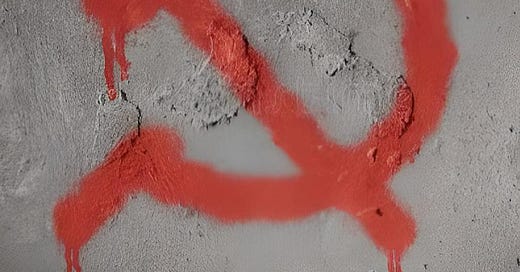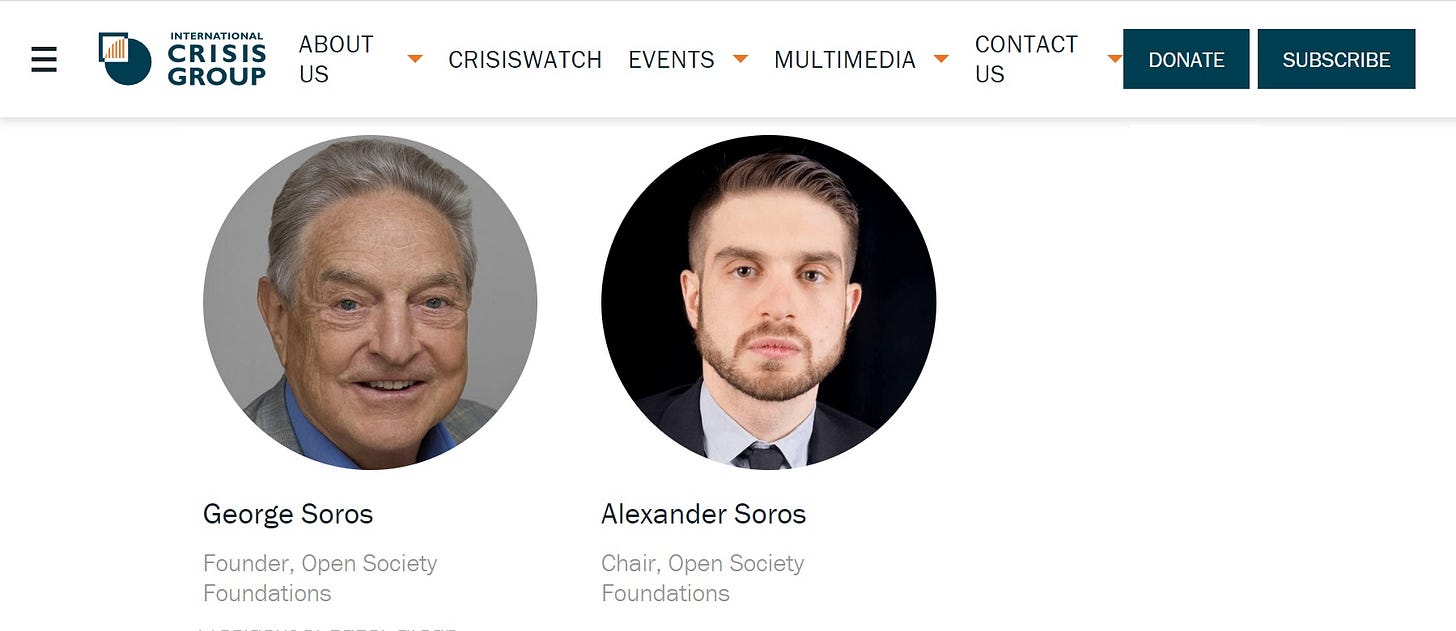USAID in the Red: Funding Anti-Capitalist Agenda?
B Lab's Covert Operations Unveiled: USAID Funds Questioned Amid Capitalism in the Crosshairs
By Dick LaFontaine and Richard Luthmann
This story questions whether Russian front organizations dedicated to overthrowing capitalism and the United States economy have co-opted the United States Agency for International Development (USAID). We ask whether USAID’s funding of the B Global Network is part of a larger active measure.
Since its launch in 2007, the B Global Network has carved out a niche in "social capital markets" and "impact investing," urging businesses towards “socially responsible” practices. Yet, a closer examination of B Lab's historical web presence reveals hints of a more contentious goal: to undermine the United States' economic fabric as part of a broader, possibly Russian-backed, strategy.
We present the investigative evidence and leave the reader to draw their own conclusions.
USAID's Controversial Alliances
The United States Agency for International Development (USAID) (and others, including the Rockefeller Foundation and Deloitte L.L.P.) is under increasing scrutiny for supporting the B Global Network and B Lab U.K. Allegations suggest these groups, while advocating for a form of Diversity, Equity, and Inclusion (D.E.I.), could be concealing goals contrary to U.S. interests, explicitly targeting the capitalist framework and economic stability.
USAID is an independent agency of the United States government. It is primarily responsible for administering civilian foreign aid and development assistance programs. USAID works under the overall policy guidance of the Secretary of State and collaborates with other government agencies to implement its programs and initiatives. It does not distribute military aid and receives its funding from the U.S. Congress.
Since February 2022, USAID has provided more than $23 billion in humanitarian, economic, and development assistance to Ukraine. Over 41 countries have committed a total of more than $140 billion in civil and military aid to Ukraine, including over $70 billion from the United States. Allegations of corruption and grift surround this aid.
The B Global Network members, recognized as B Corporations, are accused of engaging in activities that align closely with foreign legislation and narratives that may undermine U.S. sovereignty and economic principles. Notably, these entities within the B Lab nonprofit network, including Imperative 21, are charged with adhering to foreign laws and social agendas reflective of Russian interests, raising concerns about their operations' integrity and ultimate objectives.
The controversy extends to B Lab’s association with entities like The B Team, directed by figures such as Sir Richard Branson and Tom Pravda. This group, alongside others operating under various guises, faces accusations of serving as fronts for organizations with adverse agendas.
Furthermore, the International Crisis Group and the Global Steering Group for Impact Investment, linked with influential global figures and organizations, have been examined for their relationships and financial ties, particularly with Russian financial institutions. George Soros and his son Alexander are both Board Members of the International Crisis Group.
The involvement of USAID and others in supporting networks interlinked with these contentious actors prompts a reevaluation of their funding initiatives and the implications for U.S. national interests.
B Lab's Shifting Agendas

Since its launch in 2007, the B Global Network has carved out a niche in "social capital markets" and "impact investing," urging businesses towards socially responsible practices.
Yet, a closer examination of B Lab's historical web presence reveals hints of a more contentious goal: to undermine the United States' economic fabric as part of a broader, Russian-backed strategy.
In practice, the members of the B Global Network, known as B Corporations, are accused of the following:
Requiring adherence to the foreign laws, propaganda narratives, and "active measures" social agendas of the Russian Federation as a condition of employment or of doing business with them;
Financing the espionage activities of Russian front organizations within the United States, including the African National Congress of South Africa and the Palestine Liberation Organization;
Financing the espionage activities within the United States of the several foreign powers of the Organization of the Islamic Congress, including the alliance of terrorist organizations known as al-Qaeda, whose members include Hamas and the Palestine Liberation Organization,
Engaging in racketeering against all political dissent from the propaganda of both Russia and al-Qaeda to establish Islam as the state religion of the United States under the undisputed rule of al-Qaeda.
Critics further argue that B Lab's recent pivot towards Diversity, Equity, and Inclusion (D.E.I.) principles might not be as benign as it appears.
B Lab’s current website claims, “B Lab is the nonprofit network transforming the global economy to benefit all people, communities, and the planet.” It further says, “Our international network of organizations leads economic systems change to support our collective vision of an inclusive, equitable, and regenerative economy.”
Since 2021, B Lab has had its own D.E.I. acronym: Justice, Equity, Diversity & Inclusion (JEDI). The B Lab website says, “JEDI is the framework for how we build teams, cultivate leaders, and make business a force for good.”
Some see these statements as nothing more than an embrace of progressive values. Others see the DEI / JEDI shift as a strategic cover, a way to cloak deeper, potentially subversive ambitions under the guise of progressive values.
B Lab’s website reveals its actual intentions when framing the problem it seeks to address and its “Theory of Change”:
“The current economic system, driven by business as one of its key actors, is failing to meet its potential and promise to create positive impact. It creates significant negative impacts for people, communities, and the planet.”
B Lab’s goals appear to be solidly anti-capitalistic and anti-business. In reality, the claims are de facto communist in nature. They talk about overthrowing the American Justice System and fundamentally redefining American law.
The concern is that USAID is financing a calculated effort to weaken U.S. economic stability and erode democratic values while maintaining the appearance of advocating for social good. Remember what Lenin and Stalin both said: “When we hang the capitalists, they will sell us the rope.”
Russian Influence and Funding
The financial backing from Russian entities is not just a matter of conjecture. B Lab receives unspecified anonymous contributions. It has also received sponsorship from Leonard Blavatnik, who is associated with Russia's Alfa Group. Despite a history of “distancing himself” from Russia, Sir Leonard, knighted in the U.K. for his philanthropic efforts, initially amassed his significant wealth through the "aluminum wars" and Siberian oil fields. Several of Blavatnik’s former business partners were directly targeted by sanctions shortly after Putin's military invaded Ukraine: Mikhail Fridman, Petr Aven, and German Khan, shareholders of Alfa Group and co-investors with Blavatnik in oil giant TNK-BP before Rosneft acquired it in 2013.
Blavatnik's involvement with the Leonard Blavatnik School of Government, which collaborates with institutions linked to Russian financial sectors, such as Sberbank, underscores the depth of the Russian connection. These relationships suggest a potentially orchestrated strategy to exert influence beyond financial investment and amplify concerns over the potential for subversive activities to destabilize U.S. economic and social frameworks.
Further complicating the picture is the involvement of The B Team. Despite its advocacy for social causes, this group has been criticized for serving as a front, with allegations pointing towards connections with banned organizations and compliance with foreign, particularly Russian, narratives and laws.
Moreover, the strategic partnerships and financial ties extend to influential networks and individuals directly linked to the Russian economy. This intricate web of connections and the consequent financial flows into B Lab's initiatives from Russian sources highlight a concerted effort to redefine American economic and social landscapes under the veneer of philanthropy and social responsibility.
Legal and Constitutional Concerns
The infusion of Russian support into B Lab’s initiatives has triggered significant legal and constitutional concerns. This development, coupled with the financial assistance USAID, raises questions about potential violations of the United States Constitution and specific statutes to protect national security and the nation's economic framework.
Critically, the involvement of USAID with organizations that may harbor intentions misaligned with American economic and democratic values calls for an in-depth examination of legal boundaries. The Communist Control Act of 1954, in particular, emerges as a cornerstone of this legal scrutiny.
According to 50 U.S.C. § 842, "The Communist Party of the United States, or any successors of such party...whose object or purpose is to overthrow the Government of the United States...are not entitled to any of the rights, privileges, and immunities attendant upon legal bodies."
This legislative language underscores the gravity of supporting any entity working against the foundational principles of the U.S. government or its capitalist economy.
USAID's backing of B Lab and related entities, if found to align with goals that threaten to destabilize or overthrow U.S. economic systems or democratic ideals, would constitute a significant legal and national security concern. How can the U.S. Government unwittingly finance its own overthrow?
Congressional Scrutiny of USAID Engagements is Necessary
We believe rising apprehensions call for a comprehensive Congressional review of USAID’s activities. Confirming that federal funds are not unintentionally supporting endeavors that conflict with American principles and economic resilience is essential. A meticulous examination of USAID’s ties with groups possibly harboring anti-capitalist agendas is necessary to protect taxpayer investments and maintain the core values of the American economic system.
Given the significance of these claims, Congress must scrutinize the nature of USAID’s associations and the objectives of its funded entities and illuminate the extent of USAID’s involvement with such groups. It will also consider whether these relationships align with U.S. laws and economic policies and whether current funding strategies inadvertently aid agendas that could destabilize American economic structures and principles.
Given the potential national security and economic integrity implications, Congress ensures that USAID’s engagements strictly adhere to American interests and statutory mandates. The overarching goal is to affirm that taxpayer dollars are allocated in a manner that fortifies, rather than fractures, the foundational principles underpinning the American economy and society.
What do you think?









